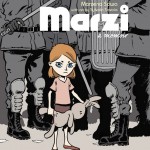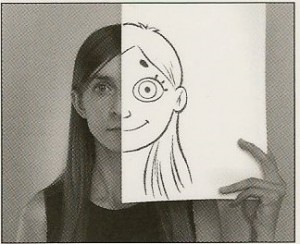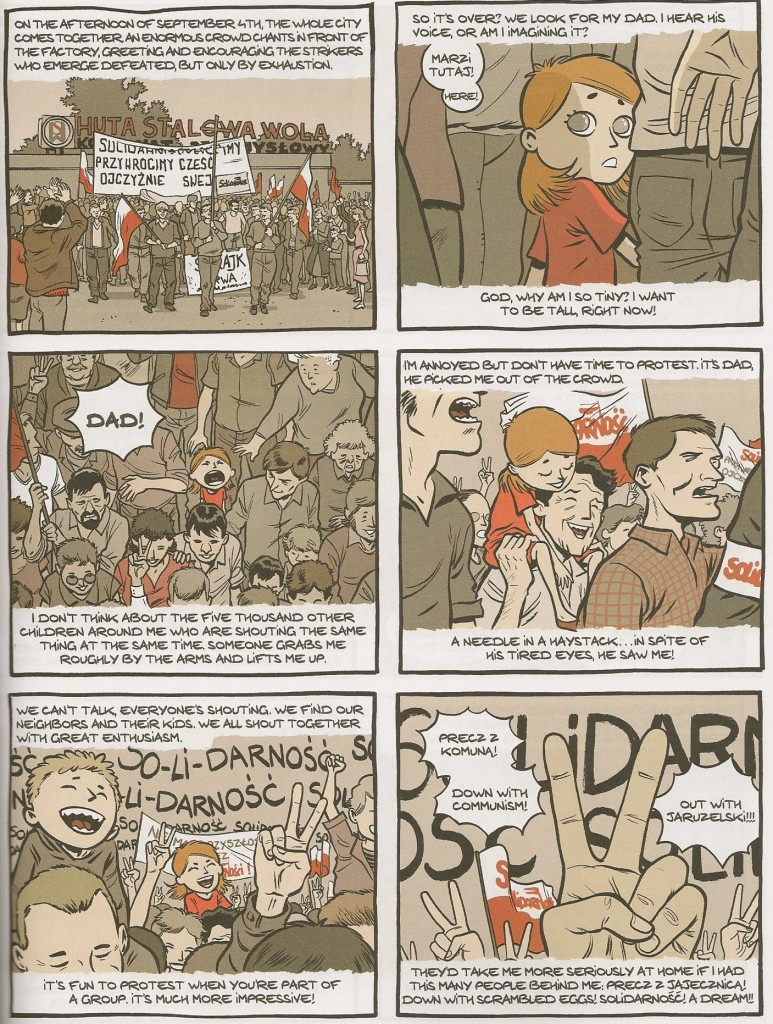 When you say the words “comic book” to the average American, they will most likely think of stories having to do with capes and cowls. However, there is a rich tradition of comic books that are reality based, topical, even autobiographical. Marzi, written by Marzena Sowa with art by Sylvain Savoia, falls within that tradition. Marzi, published in North America by Vertigo, was originally published in Belgium. The stories chronicle growing up in communist Poland just as the Eastern Bloc is beginning to strike and demand its freedom. However, although those events are the backdrop to Sowa’s story, the book is really more about what it was like to be a little girl, as she explains to Cafe Babel.
When you say the words “comic book” to the average American, they will most likely think of stories having to do with capes and cowls. However, there is a rich tradition of comic books that are reality based, topical, even autobiographical. Marzi, written by Marzena Sowa with art by Sylvain Savoia, falls within that tradition. Marzi, published in North America by Vertigo, was originally published in Belgium. The stories chronicle growing up in communist Poland just as the Eastern Bloc is beginning to strike and demand its freedom. However, although those events are the backdrop to Sowa’s story, the book is really more about what it was like to be a little girl, as she explains to Cafe Babel.
“Sometimes readers find it surprising that besides strikes, usually associated with Jaruzelski and ‘Solidarity’, people also had a regular life,” the author explains. “I mean, going to school and to work, children playing in the courtyards, holidays. My comics won’t age. Even twenty years on you will find something new, something for yourself. We were all children, and we all had some wishes that never came true; I was always dreaming about getting Barbie from Pewex (communist-time stores which sold Western goods in exchange for Western currencies).”
Marzi‘s story is heartfelt and relatable. No matter which side of the Iron Curtain we grew up on, we have all been children. We have all had to deal with, in varying degrees, parents who don’t understand us, the heartbreak of best friends who move away, and the awkwardness of elementary school scoliosis screenings. Who didn’t fret over whether your doll was good enough to keep up with the Joneses when playing Barbie or irritate your neighbors because the games you’d play with your friends caused a ruckus that disrupted everything around you? What child hasn’t experienced a trip to far away relatives he or she didn’t even know they had or been chastised by parents because he or she wanted to do everything but the chores they’d been assigned on what was supposed to be a vacation?
However, Marzi‘s story does reflect the impact the push for Solidarity had on her family as well. Her father becomes very active in the illegal unions that the factory workers had formed and participates in the strikes that would take him away from his family for days at a time. The prospect that he might not come home terrifies young Marzi, but magnifies her relief when he does finally come away from the strike to rejoin his family:

The artwork by Sylvain Savoia captures the childlike wonder with which young Marzi views the world around her. The drawings tend toward simple, thick lines which reinforce the idea of children at play in a bit of a cartoon-y way. Those drawings are interspersed with graphic elements such as political posters of the day and household objects of the time which help to ground the work and prevents it from looking like a Sunday funnies page. The artwork is by turns whimsical and serious and it supports the story well.
Sowa and Savoia have collaborated on further books that follow Marzi’s life up through her eventual departure from Poland to study in France. Here’s hoping that Vertigo will pick those up to publish here in the United States as well.
 Podcast RSS Feed
Podcast RSS Feed iTunes
iTunes Google Play
Google Play Stitcher
Stitcher TuneIn Radio
TuneIn Radio Android
Android Miro Media Player
Miro Media Player Comics Podcast Network
Comics Podcast Network